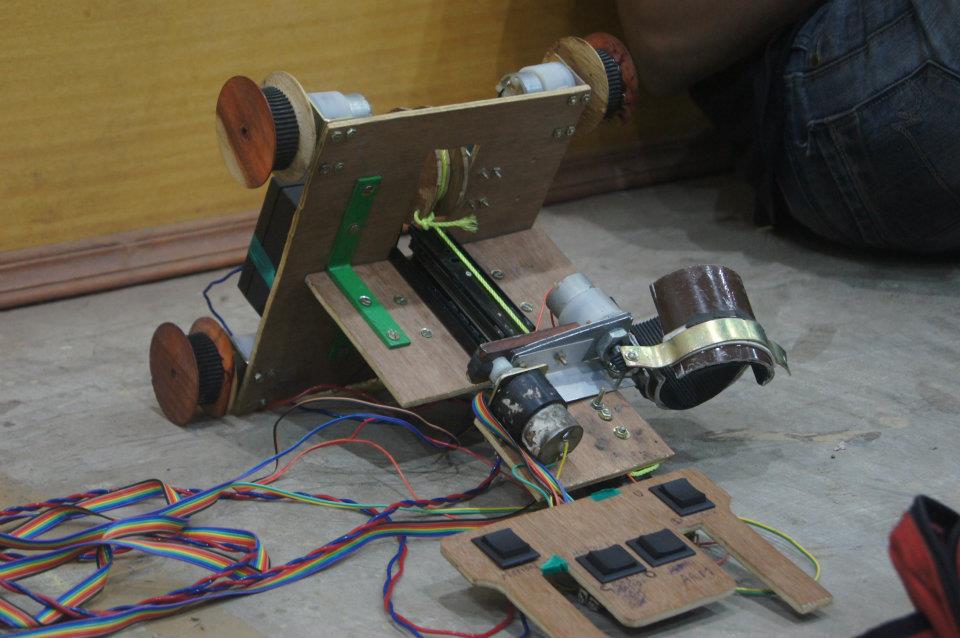Every year, in the months of September and October, a peculiar phenomenon takes place. The inboxes of professors and researchers in Europe and North America fill up with emails uncannily similar in tone and content. Undergraduate students all over India send these emails, explaining how interested they are in the work these professors and researchers are doing and how they will be eternally grateful if they are extended an invitation to do a research internship over the summer. Many of you reading this article will probably have taken part in this activity or will be doing so in the not-too-distant future. This correspondent has contributed to this phenomenon too.
Emailing professors all over the world asking for research internships is not always a bad thing. However, there are many instances in which professors find this an unnecessary intrusion. Some begin to distrust such requests after insincere attempts or patently false claims. For example, a few students mail professors in the same department working in totally different areas and claim to be interested in both. Others express a desire to do research in an area in which the prospective host has not worked since the student was born. Also, students often seem to forget that good research happens in India as well.
For some programmes, like MITACS Globalink, you do not have to mail each prospective host by yourself. The application procedure itself involves choosing a research problem or a professor you would like to work with. For others, such as DAAD WISE or Caltech’s SURF, you need to obtain an invitation from a host for a summer internship before you are eligible for the scholarship.
The “Prof” way about it
Possibly the best way for you to start looking for a research internship at a university abroad or in India is to contact a professor at IITM working in the field you are interested in and check if it is possible for you to go work with his or her collaborators overseas. The Dean (IAR) says, “There is a huge benefit in doing it this way. For one, your professor here will be likely be able to tell you the kind of working environment you should expect at your host university.” This will help you avoid any rude shocks when you reach there. For example, you might be expecting an extended interaction with the professor but could end up seeing him or her only a couple of times, and interact mostly with the professor’s postdocs and PhD students. Or you might expect to be working on a significant part of a research problem but instead be handed menial, insignificant work for the entire summer.
“It will probably be easier for you to get an internship if you’re recommended by a professor here,” says the Dean, “since when you send an email on your own, it is difficult for the person at the other end to decide whether you’re the kind of student they’re looking for.” Simply put, they don’t know how good you are. But when you come recommended by a collaborator of theirs, they are more likely to take you seriously, actually go through your resume and hopefully be impressed by all the things you claim to have done and purport to do if given the internship.
When you come back after a few months, it will most likely be possible for you to continue the work you started there since your mentors already have a collaboration. It might not be possible for you to make substantial progress over just one summer so if you like the work you do at your host university, this will be rather beneficial as doing a long-term project will increase your chances of publishing a paper or even getting a patent. Also, the Dean says, “In many cases, your professor here might have done his PhD or postdoc in the place you are planning to go, hence his collaboration. Then, an even longer term advantage of this approach is that your professor here will be able to advise you if the place you are planning to go to is a good place to do your PhD, if you are so inclined.” The internship can then play a significant role in both your decision and theirs.
Finally, the Dean adds, “In the most extreme of cases, when there are allegations of intellectual property theft or of damage or theft of goods and equipment from either the student’s or host’s side, the institute may be able to step in and help resolve the issue.” This is possible since the student has gone abroad via a professor of the institute and thus some responsibility shifts to the institute.
However, over the years students have contacted professors abroad or in India on their own, and have had experiences varying from the wonderful to the torrid. Largely, one does not hear of overly torrid experiences and if you are willing to take some amount of risk, then going solo is an alternative.
Money, Money, Money
Regardless of whether you’re going through a professor or solo, the financial aspect of your internship is important – unless you do a research internship in India or you’re rolling in so much cash that a couple of lakhs is small change. Scholarships such as DAAD WISE or the SN Bose Scholars program largely cover your expenses, so if you get one of these, then your money problems will largely be solved. If you are requesting funding from your host, be absolutely sure you will get it.
At the end of the day, you are contributing to their research and it does not really make sense to spend a large sum out of your own pocket to work for someone when you are not assured of any tangible benefit in the beginning. “The institute has been trying to get alumni funding to cover half of what the student spends out of his pocket, but if you do a research internship abroad, the cost runs into 4 to 5 lakh INR, and there is no way we can provide that much,” says the Dean, ”so don’t go if you can’t afford it.”
Tips on going solo: How to avoid this, this and this
 1. The only impression your host can form of you is through your mail. Make sure your mail is grammatically correct, and use good English throughout.
1. The only impression your host can form of you is through your mail. Make sure your mail is grammatically correct, and use good English throughout.
2. Do not beg or grovel in your mail. Do not threaten either.
3. Go through the professor’s website with sufficient thoroughness and have a good idea of what he is working on.
4. If a professor has stated on his website that he does not take interns, do not mail him.
5. Contact only those professors whose work really interests you and avoid mailing because you’re not getting replies or because your senior got a reply from this or that particular professor. When you mail a professor whose work you’re not really interested in, you are adding to a barrage of mails in which the mail of someone who is truly interested may be lost.
6. If you claim to have read someone’s work, do actually read it – a false claim could cause you embarrassment if you are quizzed by the professor later (and of course, lying is bad).
7. You could use the same email while contacting different professors but remember to change necessary details. Nothing makes a worse impression than getting a professor’s affiliation wrong.
A (possibly apocryphal) tale an acquaintance of mine related to me, with great pride I might add, was how he mailed a few hundred professors all over the United States in order to get a research internship. This is precisely the sort of thing you should not do. Writing a script that trawls professors’ websites, replaces necessary details in a generic email and then sends this suitably modified email to an arbitrary number of prospective hosts is a clever idea, but violates many of the guidelines above.
The Good, the Bad and the Ugly
 The advantages of a research internship abroad are obvious. You get to see a new country, imbibe its culture, and hopefully get some good research done along the way, maybe even publish a paper. However, this last part is often the hardest in an internship abroad. It may take a while for you to acclimatize to the conditions there. Something as essential as food may become a problem. The urge to travel and sightsee may turn an internship into a paid holiday.
The advantages of a research internship abroad are obvious. You get to see a new country, imbibe its culture, and hopefully get some good research done along the way, maybe even publish a paper. However, this last part is often the hardest in an internship abroad. It may take a while for you to acclimatize to the conditions there. Something as essential as food may become a problem. The urge to travel and sightsee may turn an internship into a paid holiday.
It is eminently possible to do good research staying back in India and interning at a place like TIFR or IISc. Adjusting to the conditions probably won’t be much of a problem and distractions will be limited. Ashwin Pananjady, a 4th year student of Electrical Engineering, says, ”My classmate Vivek Bagaria and I applied directly to a professor at TIFR and he agreed to commit time at the outset. Our primary motivation was to do research, and we managed to submit a paper to a reputed conference.”
In India, it is also easier to bail out and look for another opportunity if you are having serious problems with the working environment. Work-related problems such as the lack of guidance or having to do menial, insignificant work will largely be the same both at home and abroad. These, however, can be mitigated to a large extent by going for an internship via a professor at IITM.
At the end of the day, only what you learn and the research you do really matters, be it abroad or in India. As Gustave Flaubert wrote to George Sand, “L’homme n’est rien, l’oeuvre – tout”.
Ask what the Institute can do for you
Going abroad is a fun and enriching experience. In IITM, the Office of International Relations has taken steps to make the entire process more systematic and ensure that good relations are maintained with professors in universities abroad. It has signed various MOUs for exchange programs, summer internships and joint projects, especially those with a social bent. In particular, various research internships through the OIR are listed here. The table below lists some research internship programs which are not listed on the OIR’s website.
Name of research internship program |
Website |
|
Caltech’s SURF |
|
|
Ecole Polytechnique’s Internship Program for International Students |
http://www.admission.polytechnique.edu/home/exchange-programs/internship-program/presentation/ |
|
Okinawa Institute of Science and Technology Research Interns |
|
|
S.N. Bose Scholars Program |
|
|
Khorana Program for Scholars |
|
|
Cornell-IIT Internship Program |
|
|
TIFR’s Visiting Students’ Research Program |
|
|
Science Academies’ Summer Research Fellowship Programme for Students and Teachers 2014 |
|
|
Undergraduate Projects and Internships at the University of Waterloo’s Institute for Quantum Computing |
|
|
Internship for Indian Students at EPFL, Switzerland |
|
|
Visiting/Summer Student Program at The Institute of Mathematical Sciences, Chennai |
|
|
Summer Vacation Studentships by the Biochemical Society |




